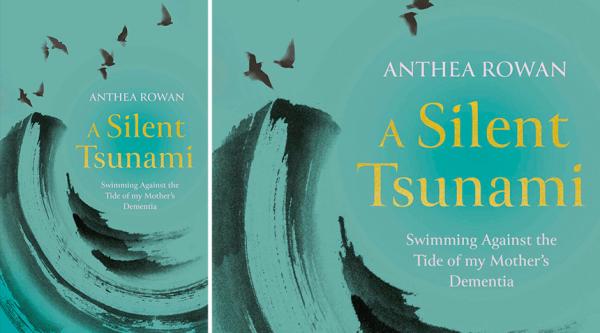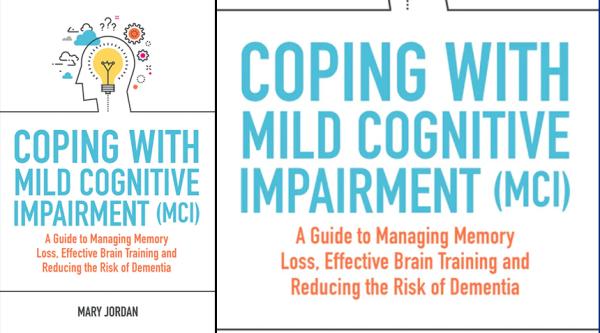Information
Book group: Ten Days
We read a novel about a widower and his daughter, in which Alzheimer’s ends up playing a significant role.
Spoiler warning: this article includes significant plot details
Ten Days, the second novel from Irish author and cancer doctor Austin Duffy, was published in 2021.
It delves into the complicated love between Wolf and his teenage daughter Ruth.
‘Wolf has been absent for much of Ruth’s childhood, having left her and her mother, Miriam,’ says reviewer Ann Molyneux.
‘He comes back into their lives when Miriam is diagnosed with cancer.’
As we follow their journey from London to New York to scatter Miriam’s ashes, Wolf’s behaviour becomes increasingly confusing and we gradually learn why.

Family discord
It begins as a tale of family conflict, not only between Wolf and Ruth, but also between Wolf and Miriam’s family, explains Judith King.
There is a chasm between Wolf and Miriam’s conservative Jewish family. Both in terms of the faith he doesn’t share, and the number of years since he has seen them.
‘Miriam’s family seem to blame Wolf for the choices that Miriam made, including her choice to be cremated, rather than buried.
‘As a reader we can only rely on Wolf’s account of the extent to which Miriam embraced her faith, but it does appear that he is following her last wishes.’
Slowly and subtly, the novel morphs into an account of cognitive decline, as we learn that Wolf, like his mum, has been diagnosed with dementia.
Mira Fey says, ‘He scrambles to make excuses for being lost in familiar places and in front of familiar faces as he keeps the diagnosis from those around him.’
Meghan Higgins says it’s a slow burner, but it really packs a punch.
‘Duffy has harnessed the subtleties of dementia symptoms and how they might affect someone’s perception of the world,’ she says.
‘As a result, you are left feeling quite uneasy, imagining the new world that Wolf now must navigate.
The portrayal of dementia symptoms, for me, were so well observed that they were obvious from the get-go.
‘However, I think if you do not have exposure to this world, then it may present as a lot more subtle.’
Emotional rollercoaster
Ten Days can be an emotionally challenging read, say our reviewers.
‘The structure of the narrative reflects Wolf’s struggles, as he moves between periods of clarity and dislocation,’ says Judith.
‘Being led through the book from Wolf’s perspective we often have to fill in the gaps, and some of the repeated actions shook me as a reader, just as they shake Miriam’s family.’
Mira agrees, ‘Duffy clearly portrays quick changes in emotions, agitation and restlessness linked to forgetting plans, locations, date and time.’
Ruth Woodfield says readers of this book are set for a choppy, emotional journey.
Every emotion going, from frustration to sadness to compassion to humour.
But in the emotional whirl, Ann notes that you also feel for Wolf.
‘It is impossible not to feel empathy for Wolf as the symptoms of Alzheimer’s disease take over his personality and he tries to repair his relationship with his daughter.’
Judith adds, ‘I felt more compassion for Wolf than he receives from those around him, as I was party to the difficulties he was experiencing, both in navigating his own grief and the dislocation of his memories.’
Depiction of dementia
All our reviewers were struck by the beauty of the author’s writing.
‘The visit that Miriam and Wolf make to see his mother is a particularly poignant depiction of dementia,’ says Ann.
For Meghan, the novel had deep personal resonance too.
‘In my experience, it is not often that you see the portrayal of a teenage daughter affected by dementia.
‘I was a similar age to Ruth when my mum first started showing signs of dementia and I recognise that same teenage defiance and denial that, later, I really regretted.
Reading this book really allowed me to reflect on my experiences in the early days of my mum’s symptoms.
‘Although Duffy portrays Ruth as quite stand-offish with her father, I think it is in a very forgiving light considering her perception of her father’s behaviour and how it links to their fractured relationship.’
Who would like the book?
The novel may appeal to lots of different readers.
‘I’d recommend this to anyone who loves to explore the complexity of love, guilt and relationships and the importance of compassion and understanding to heal,’ says Ruth.
‘While not a cheerful read, it is insightful novel.
‘I would certainly recommend it for readers who want an insight into the thoughts of someone in the early stages of Alzheimer's disease, and those interested in New York’s Jewish community,’ adds Mira.
Meghan found comfort in reading about an experience that’s familiar to her.
I found it strangely comforting to read about an experience even slightly similar to mine.
‘So perhaps I would recommend this to people who have a parent with young-onset dementia.’
Whatever your reasons for reading Ten Days, Meghan says it deserves time and attention.
‘Give it time and space to really take it all in – it’s not a book that can be quickly devoured.’



